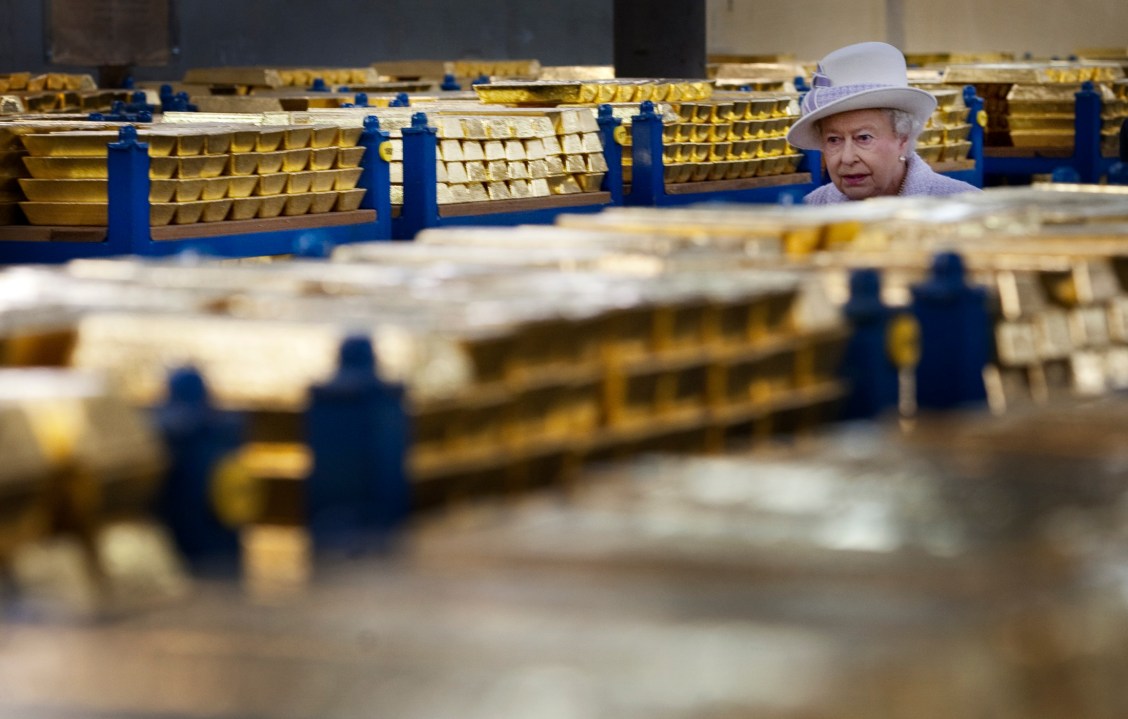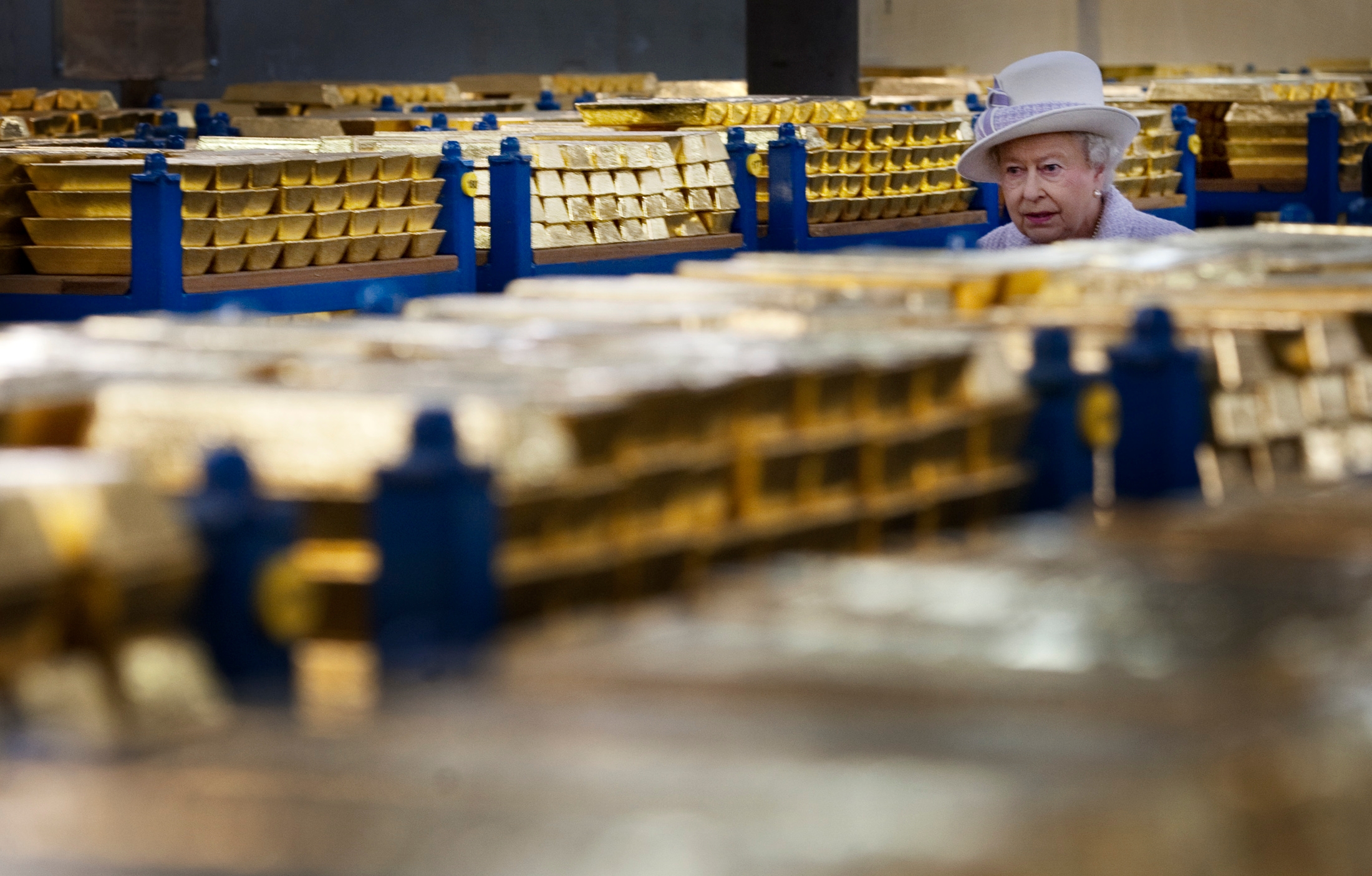The price of gold has been rising since the earliest virus reports from China in December. Adherents regard it as a hedge against inflation, bad government, economic turmoil, weak currencies and negative real returns on financial alternatives, all of which are present threats. For pessimists, this week’s headlines — above-inflation pay rises for 900,000 UK public-sector workers, the EU’s €750 billion debt-fuelled recovery package, the WHO’s report of 260,000 new Covid cases in a single day — all represent arguments for this ultimate safe-haven holding.
Too late to jump on the bandwagon? I’m no natural pessimist and (as I’m about to reveal) I’m a hit-and-miss forecaster, but I do see a case for some gold insurance in any well-balanced portfolio. How to achieve that? A quick word from this column’s veteran investor, Robin Andrews: ‘A new investor might do worse than buy a few gold coins as the lowest-risk investment in the sector and look for significant upside in carefully chosen exploration stocks.’ We’ll come back to stock choices another week, but the message for now — amid the daily confusion of positive and negative signals — is don’t overlook the possibilities of gold.
Too gloomy?
In early April, when lockdown had anaesthetised the housing market, I predicted it would re-open in the autumn at 15 to 20 per cent below pre-virus levels, echoing what happened after the 2008 crash — and suggested that wouldn’t be bad if it made first homes more affordable for the generation that will lead post-pandemic recovery. I still think the coming recession will depress house prices for the medium term but I’m happy to admit that, for now, my forecast was too gloomy: estate agents report a surge of enquiries boosted by the temporary stamp duty cut, while Rightmove says the average UK house price this month, at £320,625, is 2.4 per cent up on March. Was my grim forecast excusable?
In those dark days, you’d have thought me mad if I’d predicted a mini-boom by mid-July. And I made at least one useful market impact: I hear of a young first-time London buyer who was poised to exchange contracts when he read my column and got cold feet; the vendor, equally unnerved, responded with a six-figure price cut that sealed the deal. Glad to have helped.
Boeing gone at last
While I’m in confessional mode, I’ll admit I was once the author of a Daily Telegraph obituary of a man who turned out not to be dead. The then proprietor, Conrad Black, phoned the desk and said: ‘You have printed the obituary of my friend so-and-so who I’m dining with tonight. What should I say to him?’ Likewise, 16 years ago I wrote about the passing of the Boeing 747, believing that the jumbo jet which had long symbolised America’s global reach was about to be eclipsed forever by the icon of European co-operation that was the Airbus A380. Then last year I had to report that it was in fact the A380 which had prematurely expired, only 234 having been sold, while the 747 soared past 1,500 sales and remained in production.
But now at last, after 50 years’ ultra–reliable service, the 747 really is on its way to the great hangar in the sky, as my strapline claimed in 2004. British Airways and Lufthansa are retiring their fleets and the Californian subcontractor that made the fuselages is dismantling its plant. I won’t tempt fate by reciting the poetic heights of my previous eulogy, but I salute — once more — a triumph of design and manufacture that changed the 20th-century world.
Undignified
I’m intrigued by a note on the Motley Fool share-tipping website highlighting Dignity plc, the funerals group, as a high-risk ‘recovery share’, after a 90 per cent fall since 2016. Wherever the shares go — I’m not venturing a prediction — this is a fascinating parable.
Until a couple of years ago, funeral prices enjoyed a long rise above inflation in a market dominated by the Co-op, with by far the largest market share, and Dignity, which expanded by using debt to buy up local undertakers. Then came regulatory investigation and price comparison websites — resulting in crushed profit margins and the collapse of Dignity’s share price. You might think the Covid death-spike would have been a booster — but it wasn’t, because locked-down relatives chose only the cheapest funerals.
Perhaps more expensive obsequies will become a status symbol of recovery and Dignity really will rebound. As it happens, I used their west London branch, J.H. Kenyon, for a cremation in March and found them very sympathetic as well as impeccably efficient. How undignified that such a business should also be a vehicle of financial wizardry and a plaything of the market.
Naked attraction
I have escaped for a few days to the Dordogne, where I find concern for the number of tourism-related businesses likely to fail this summer matched by Covid–resurgence fears that seem stoked rather than assuaged by stricter rules on face-coverings. One venue where those rules are clearly redundant is also the only one reporting full bookings all the way to September: the local nudist campsite. More widely, the French economy, like ours, looks positive in patches: house prices are slightly up while home-related consumer sectors are en plein boom; June car sales were ahead of 2019; and new business registrations have surpassed pre-crisis numbers. One such is La Forge, a homely bistro that has opened against the odds in my summer village of St Pompon. Astonishing value at €15 for a substantial three-course lunch with wine and coffee, it’s worth the detour from anywhere — and gives hope that my neighbours here, naked or clothed, might have a happier summer than unreliable forecasters suggest.








Comments